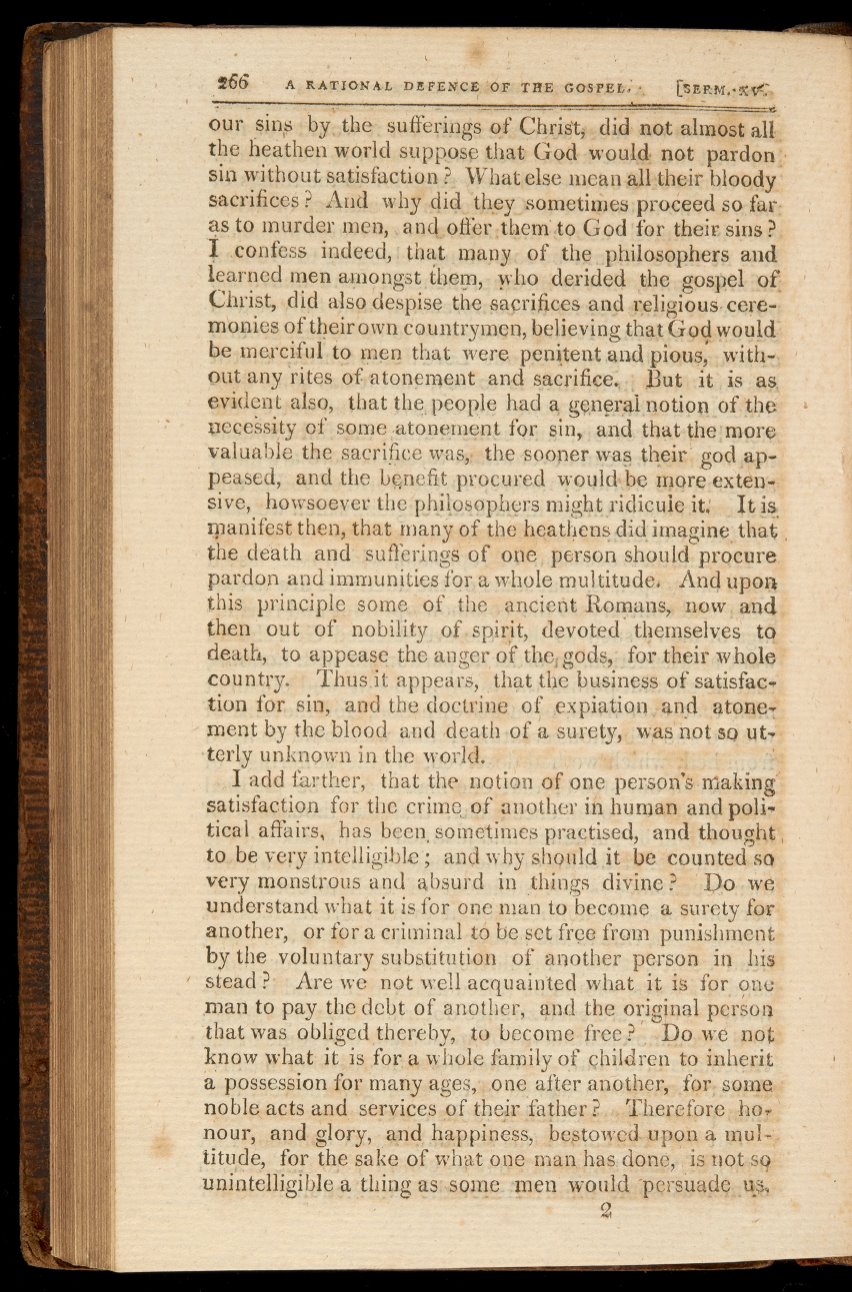

'66
A
RATIONAL DEFENCE
OF
THE GOSPEL;
t5E&M.
;d'_
our
sins
by,
the
sufferings
of
Christ,
did
not
almost all
the heathen world suppose
that God
would
not pardon
sin
without
satisfaction
P.
else
mean
all their
bloody
sacrifices
?
And
why
did
they sometimes proceed
so far
as to
murder
men,
,
and
offer
them
to
God
for
their
sins
?
I
.confess indeed,
that
many
of
the .philosophers
and
learned
men
amongst
,them,
yho
derided
the
gospel
of
Christ, did
also
despise the sacrifices
and
religious-
cere
monies
of
their
own
countrymen, believing
that God would
be
merciful
to men
that
were
penitent
and pious,
with-
out
any
rites of atonement and
sacrifice.
But
it
is
as
evident
also,
that
the,
people
had a general
notion of
the
necessity
of
some
.atonement
for
sin,
and
that
the more
valuable
the sacrifice
was,;
the
sooner
was
their
god
ap-
peased, and the benefit
procured
would be more
exten-
sive,
howsoever the philosophers might
ridicule it:
It
is
manifest then,
that
many
of
the
heathens did
imagine.
that
the death and
sufferings
of
one person should
procure
pardon and
immunities
for a whole
multitude.
And
upon
this
principle
some
of
the
ancient Romans, now and
then
out of
nobility
of
.spirit, devoted themselves
to
death, to appease the anger
of
the
gods,
for their whole
country.
Thus.it
appears,
that
the business
of
satisfac-
tion for
sin, and the
doctrine
of
expiation and atone-
ment
by
the blood and
death
of
a
surety,
was
not
so
ut-
terly unknown
in the
world.
I
add farther,
that
the notion
of
one
person's
making;
satisfaction
for
the crime
of another
in
human and poli-
tical
affairs, has
been,
sometimes practised,
and thought
,
to
be
very intelligible
;
and
why
should
it
be
counted
so
very monstrous and absurd
in
things divine
?
Do
we
understand
what
it
is
for one man
to become
a
surety for
another, or
for
a
criminal
to be
set free from
punishment
by
the voluntary substitution
of
another
person
in his
stead
?
Are
we
not
well
acquainted what
it
is
for one
man
to pay the
debt of another,
and the original person
that
was obliged
thereby,
to become
free.?
Do
we
not
know
what
it
is
for
a whole family
of
children
to
inherit
a
possession for many
ages,
one
after another,
for some
noble acts and
services
of their
father
?
.Therefore
ho,
Hour,
and
glory,
and happiness,
bestowed
upon
a mul
-.
titude,
for the sake
of
what
one
man
has done,
is
not
so
unintelligible
a
thing
as some men
would -persuade

















